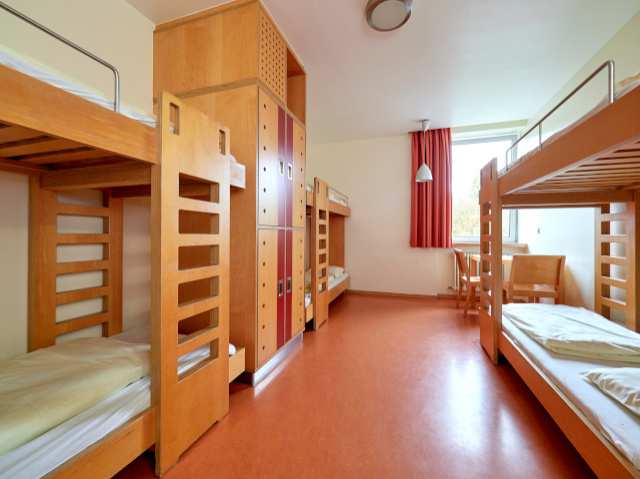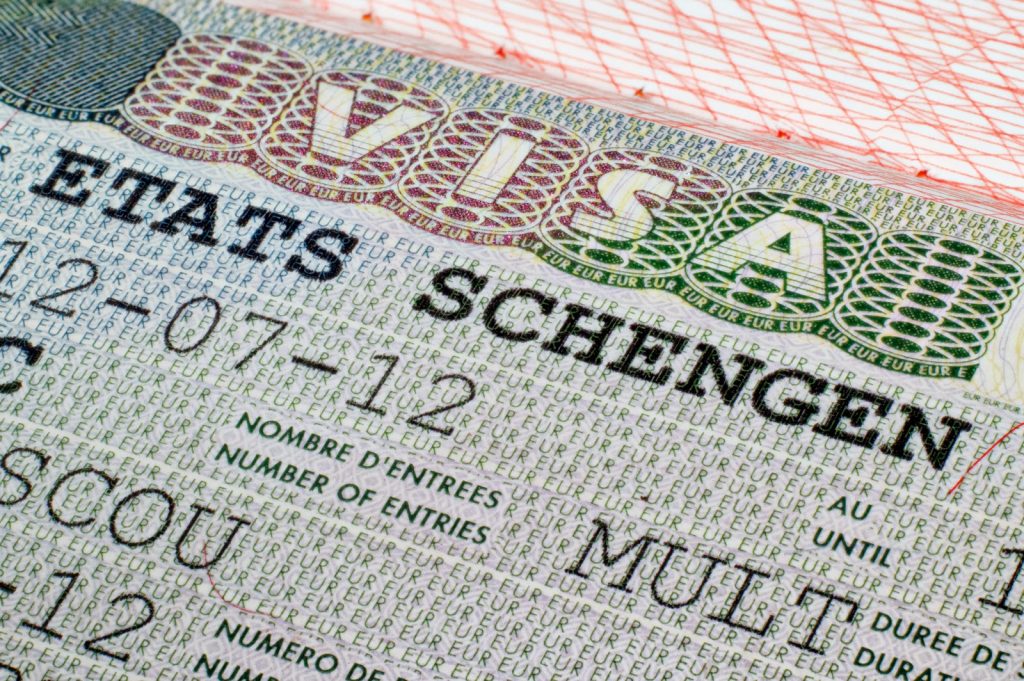Luxembourg:
Luxembourg, a tiny European nation nestled between France, Germany, and Belgium, might surprise you with its world-class education system and commitment to affordable, accessible higher learning. Often overshadowed by its larger neighbors, Luxembourg offers a unique opportunity for international students seeking a high-quality education in a safe, multicultural environment – and potentially for free!
This comprehensive guide delves into everything you need to know about studying in Luxembourg for free in 2024. We’ll explore the following:
Table of Contents
- Why Study in Luxembourg?
- Benefits of Studying in Luxembourg
- Tuition Fee Structure and Scholarships
- Cost of Living in Luxembourg
- Visa Requirements for International Students
- Types of Higher Education Institutions
- Universities
- Research Institutes
- The Application Process
- Deadlines and Requirements
- Language Requirements
- Standardized Testing
- Preparing Your Application Documents
- Submitting Your Application
- Life as a Student in Luxembourg
- Accommodation Options
- Student Life and Culture
- Part-Time Work Opportunities
- Healthcare System in Luxembourg
Why Study in Luxembourg?
Here are some compelling reasons to consider Luxembourg for your international education:
- Free Tuition: Public universities in Luxembourg offer free tuition to all students, including international students, for Bachelor’s and Master’s programs. This makes Luxembourg an incredibly attractive option for budget-conscious students.
- High-Quality Education: Luxembourg boasts a well-respected education system, consistently ranking high in international education reports. Universities offer a diverse range of programs taught by experienced faculty, ensuring a strong academic foundation.
- Multilingual Environment: Luxembourg is a multilingual country with French, German, and Luxembourgish as its official languages. English is also widely spoken, particularly in the higher education sector. This multilingual environment offers a unique opportunity to learn new languages and enhance your employability.
- Safe and Stable Country: Luxembourg enjoys a very high standard of living and boasts a low crime rate. Its political stability and strong social safety net contribute to a safe and secure environment for international students.
- Central European Location: Luxembourg’s central location provides easy access to other European countries. You can explore neighboring France, Germany, Belgium, and beyond during your studies.
- Post-Graduation Opportunities: Luxembourg has a thriving economy with a strong demand for skilled professionals. Studying in Luxembourg can open doors to exciting career opportunities upon graduation.
Tuition Fee Structure and Scholarships
While public universities offer free tuition, there are some administrative fees associated with enrollment, usually around €100-€200 per semester. Some private universities do charge tuition fees, but they are generally lower compared to other European countries.
To further finance your studies, consider scholarships offered by the Luxembourg government, the University of Luxembourg, and various private organizations. These scholarships can cover tuition fees, living expenses, or a combination of both.
Cost of Living in Luxembourg
Luxembourg has a higher cost of living compared to some European countries, but it’s still more affordable than major international cities. Here’s a breakdown of some essential expenses:
- Accommodation: €400-€800 per month (shared apartment)
- Food: €200-€300 per month (groceries)
- Transportation: €50-€80 per month (public transport pass)
- Other expenses: €100-€200 per month (utilities, phone, internet)
Remember, these are estimates, and your actual expenses may vary depending on your lifestyle choices.

Visa Requirements for International Students
International students from outside the European Union (EU) and European Economic Area (EEA) will need to obtain a student visa for studying in Luxembourg. The visa application process can vary depending on your nationality, but generally, you will need to submit the following documents:
- Valid passport
- Letter of acceptance from a university in Luxembourg
- Proof of financial resources to cover your living expenses
- Proof of health insurance
- Completed visa application form
It’s recommended to contact the nearest Luxembourg embassy or consulate in your home country for specific visa requirements and application procedures.

Types of Higher Education Institutions
Universities
- University of Luxembourg: The sole public university in Luxembourg, offering a wide range of Bachelor’s, Master’s, and Doctoral programs across various disciplines. Programs are taught in English, French, and German.
- Luxembourg Institute of Science and Technology (LIST): A public research university with a focus on science, technology, and innovation. Offers Master’s and Doctoral programs.
Research Institutes
- A number of independent research institutes in Luxembourg offer specialized Master’s and Doctoral programs in their respective fields.
The Application Process
Now that you’re convinced about the benefits of studying in Luxembourg, let’s delve into the application process for international students:
Deadlines and Requirements
Application deadlines for international students typically fall between January and March for the following fall semester intake. However, it’s crucial to check the specific deadlines of your chosen program at the university’s website.
General admission requirements for Bachelor’s programs include a completed high school diploma or equivalent qualification, transcripts, and proof of English or French language proficiency (depending on the program). Master’s programs typically require a relevant Bachelor’s degree, transcripts, letters of recommendation, and a statement of purpose outlining your academic goals and why you’re interested in the program.
Language Requirements
The language of instruction varies depending on the program. Some programs are offered entirely in English, while others may be in French or German. Check the specific language requirements for your chosen program. International students whose native language is not English, French, or German may need to submit standardized test scores like TOEFL or IELTS to demonstrate their language proficiency.
Standardized Testing
While not always mandatory, some universities or programs might require standardized tests like the Graduate Record Examinations (GRE) or GMAT for Master’s applications. These tests assess your quantitative, verbal, analytical writing, and critical thinking skills. Check program-specific requirements to determine if such tests are needed.
Preparing Your Application Documents
- Transcripts: Ensure your transcripts are translated into English, French, or German, as required by the university.
- Letters of Recommendation: Request strong letters of recommendation from teachers, professors, or supervisors who can speak to your academic abilities and potential.
- Statement of Purpose: This is a crucial document where you can showcase your academic interests, career aspirations, and why you’re a perfect fit for the program. Write a compelling and well-structured statement that highlights your unique qualifications and motivations.
- Curriculum Vitae (CV): Summarize your academic background, work experience, skills, and achievements in a clear and concise CV.
Submitting Your Application
Most universities in Luxembourg have online application portals. Carefully review all application requirements and instructions before submitting your documents. Meet all deadlines and ensure your application is complete and error-free.
Additional Tips:
- Start planning early: Research programs, gather required documents, and start working on your application well in advance of deadlines.
- Contact the university: Don’t hesitate to contact the admissions office if you have any questions or require clarification on specific program details.
- Tailor your application: Adapt your application materials to each program you apply to, highlighting relevant skills and experiences that align with the program’s focus.
Life as a Student in Luxembourg
Accommodation Options
Finding affordable accommodation can be challenging in Luxembourg City, the capital. Here are some options to consider:
- Student Dorms: Universities offer limited student housing options. Apply early for a spot if this interests you.
- Shared Apartments: Sharing an apartment with other students is a cost-effective solution. Search online platforms or student forums to find potential roommates.
- Youth Hostels: Hostels offer a temporary solution while you search for permanent accommodation.
Student Life and Culture
Luxembourg offers a vibrant student life with various cultural activities, festivals, and events. Explore museums, historical sites, and charming towns. Participate in student clubs and organizations to connect with fellow students from diverse backgrounds. Luxembourg’s multicultural environment allows you to immerse yourself in different cultures and languages.
Part-Time Work Opportunities
International students are permitted to work part-time (up to 40 hours per month) to support their living expenses. Look for student jobs in the service sector, hospitality, or online freelance work permitted by your visa.
Healthcare System in Luxembourg
Luxembourg boasts a high-quality public healthcare system. As a student, you’ll be enrolled in the national health insurance scheme upon registration at the local commune. This covers basic medical expenses. Consider getting private health insurance for additional coverage, especially if you require specialized care.
Conclusion
Studying in Luxembourg presents a unique and enriching experience for international students. With its free tuition at public universities, high-quality education, and safe environment, Luxembourg is a compelling option for those seeking a vibrant and affordable European study abroad experience. This guide has provided a comprehensive overview of the application process, costs, and lifestyle aspects to help you make an informed decision. Remember, thorough research, planning, and proactive application procedures are key to securing your place in a Luxembourgian university.
Additional Resources:
- University of Luxembourg: https://www.uni.lu/en/
- Ministry of Higher Education and Research: https://mesr.gouvernement.lu/en.html
- Luxembourg National Admissions Center:
FAQs:
Here are some frequently asked questions (FAQs) related to studying in Luxembourg for free in 2024:
1. Is it really possible to study for free in Luxembourg?
Yes, public universities in Luxembourg offer free tuition to all students, including international students, for Bachelor’s and Master’s programs. However, there are some administrative fees associated with enrollment, usually around €100-€200 per semester.
2. What types of programs are offered in Luxembourg?
The University of Luxembourg offers a wide range of programs in various disciplines, including humanities, social sciences, business, law, science, and engineering. Research institutes offer specialized programs in their specific fields. Programs are taught in English, French, and German.
3. What are the application deadlines for international students?
Application deadlines typically fall between January and March for the following fall semester intake. It’s crucial to check the specific deadlines of your chosen program at the university’s website.
4. Do I need to know French or German to study in Luxembourg?
While some programs are offered entirely in English, others require proficiency in French or German. Check the specific language requirements for your chosen program. International students may need to submit standardized test scores like TOEFL or IELTS to demonstrate their language proficiency if English is not their native language.
5. Can I work part-time while studying in Luxembourg?
Yes, international students with a valid student visa are permitted to work part-time (up to 40 hours per month) to support their living expenses. Explore options in the service sector, hospitality, or online freelance work permitted by your visa.
6. What is the cost of living in Luxembourg?
Luxembourg has a higher cost of living compared to some European countries, but it’s still more affordable than major international cities. Expect to spend around €400-€800 per month on shared accommodation, €200-€300 on groceries, and €50-€80 on public transportation.
7. What kind of visa do I need to study in Luxembourg?
International students from outside the EU and EEA will need a student visa. Contact the nearest Luxembourg embassy or consulate in your home country for specific visa requirements and application procedures.
8. Are there scholarships available for international students?
Yes, scholarships offered by the Luxembourg government, the University of Luxembourg, and various private organizations can help finance your studies. These scholarships can cover tuition fees, living expenses, or a combination of both.
9. Is Luxembourg a safe country for international students?
Yes, Luxembourg enjoys a very high standard of living and boasts a low crime rate. Its political stability and strong social safety net contribute to a safe and secure environment for international students.
10. What are some benefits of studying in Luxembourg?
- Free tuition at public universities
- High-quality education system
- Safe and stable country
- Central European location with easy access to other countries
- Multilingual environment to learn new languages
- Post-graduation opportunities in a thriving economy
